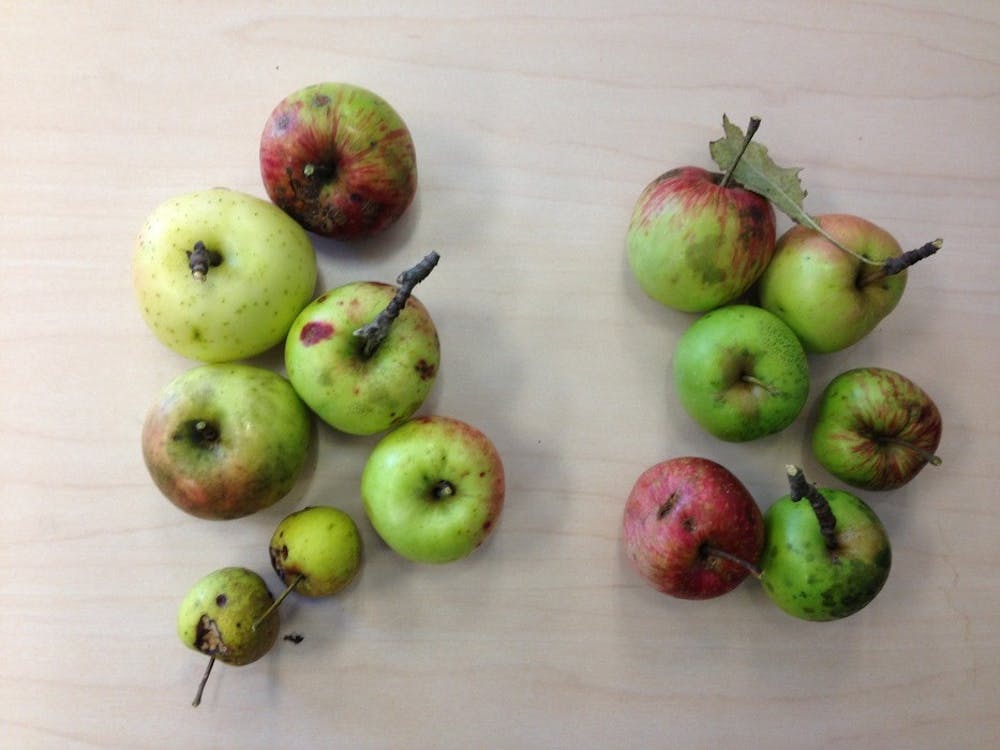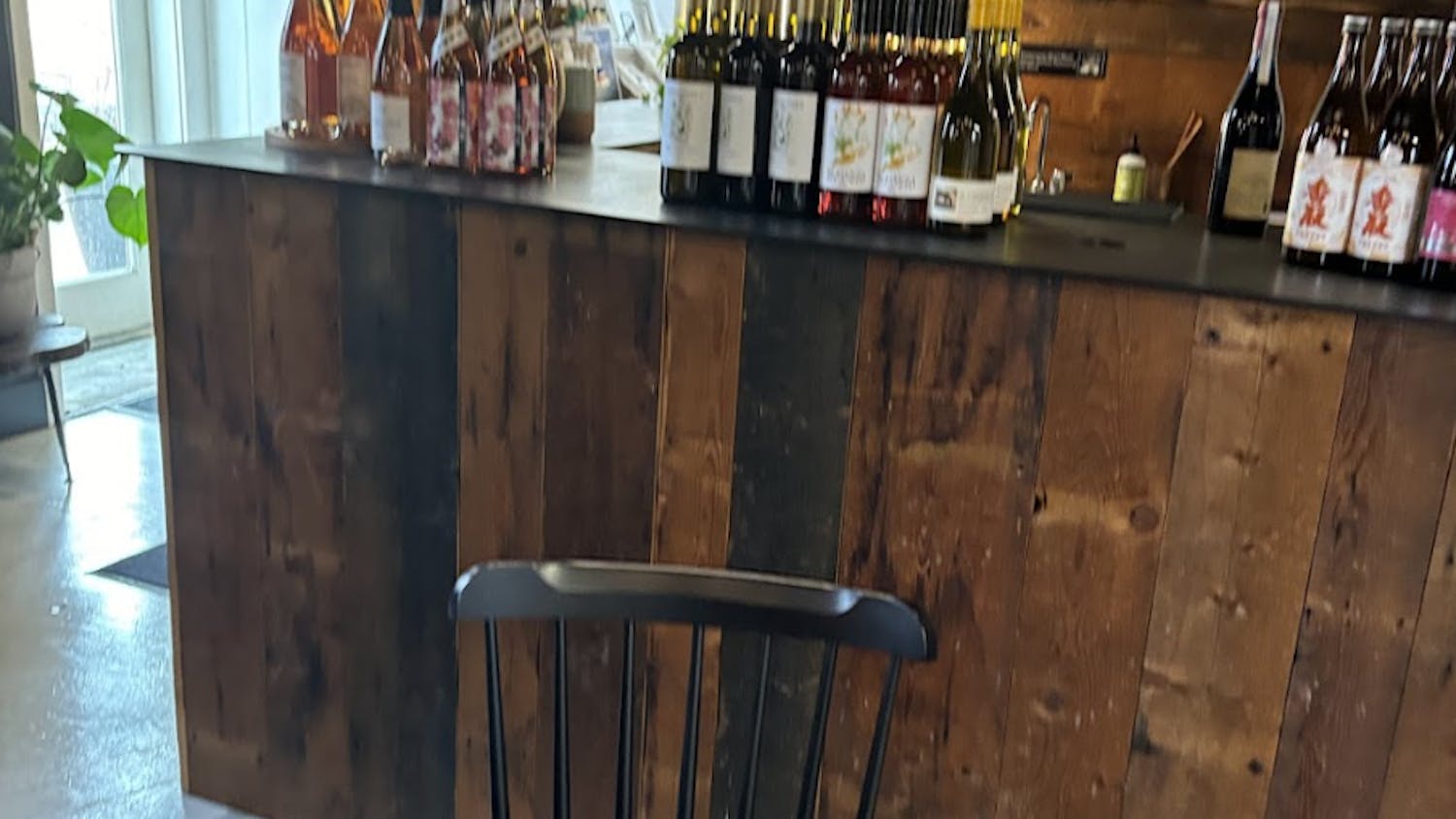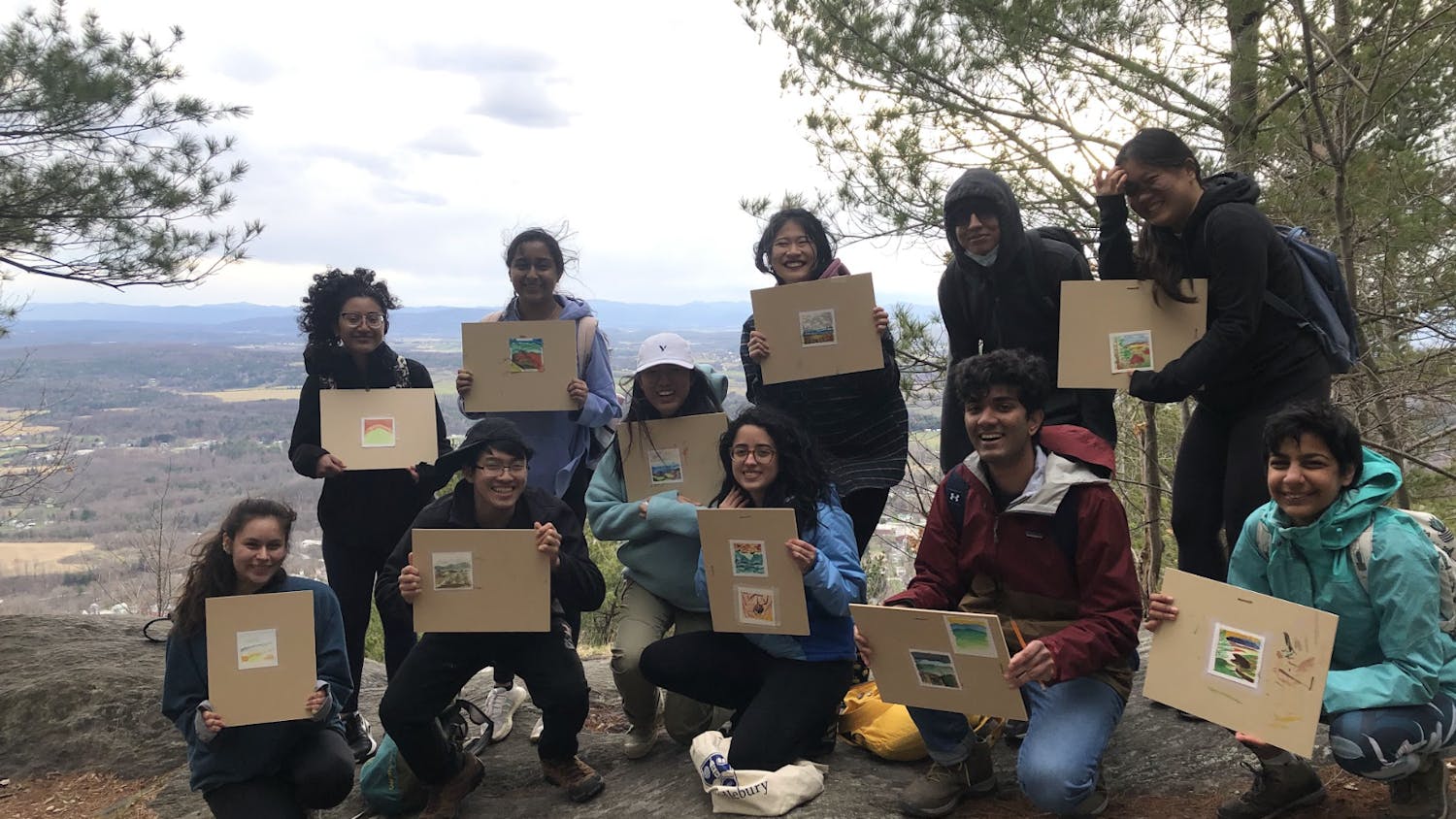Shacksbury Cider, the creation of Colin Davis ’03, David Dolginow ’09 and Michael Lee, is no Woodchuck Hard Cider, as they proudly proclaim. Rather, this new hard cider company in Shoreham, Vt. boasts something unique.
Their brewing process harks back to America’s earliest settlers, when pioneers like Johnny Appleseed planted smaller cider apples instead of the standard larger ones sold in grocery stores today.
Back when the first Europeans were settling Vermont and the greater New England area, law required that homesteaders plant 50 apple trees each.
The apples they planted — cider apples — were more bitter than desert apples and the apples we consume today. However, once fermented, the apples produced a tasty cider that helped alleviate the trouble of uneasy access to portable water.
A few historical developments prevented the beverage from entering widespread commercial use the way beer and wine did. Urbanization encroached on once rural orchards, prohibition theoretically stopped all alcohol consumption and the popularization and accessibility of German beer.
A few heirloom trees survived the changes that took place in Vermont. And now, the three cider-connoisseurs of Shacksbury Cider are determined to harvest these tree’s fruits once again.
The team searched through cow pastures, forests and down remote country roads in search of these rare trees. With the apple tree owners’ permission, they collected apples in a primitive yet surprisingly effective and ultimately efficient way. They simply using a standard pole to shake the fruit off branches and into a tarp.
Their quest extends beyond just Shacksbury Cider, though, and on a larger scale, is called “The Lost Apples Project.”
Kickstarter, the world’s largest online crowd-funding platform, helped finance the trio’s adventure.
After their fruitful search, they’ve successfully brewed cider and hope to put their first batches on the market this week.
They distinguish their product from other mass-produced hard ciders by their brewing method which they claim preserves the natural tastes of the apples.
“It is pretty much a very different product,” said Dolginow. “That juice has already been cooked up and stabilize. What you’re doing is taking a lot of the amazing characteristics that make really good cider out of the juice.”
Shacksbury Cider possesses a much more complex, more rich taste than the “sweet pixy stick flavor” of today’s hard ciders, according to the Shacksbury Cider team.
They compare their product to wine because of the sophistication of the art form inherent in its crafting and creation.
One key question remains unanswered. If these cider apples were lost and cider-making changed so drastically from the time of the first settlers to our current drink, how did these men learn a lost art? Europeans taught them. Producers in Spain, France and England educated them about traditional ciders and how to brew them.
Their process and learning lent itself to a simple philosophy that backs their entire endeavor and acts as a guiding principle for Shacksbury Cider.
“You can’t fake the fruits,” said Dolginow.
According to him, that marks another essential difference between their production and other’s.
“To start with the fruit that [other commercial cider makers] are using isn’t the right fruit,” said Dolginow. “The end products you sit down with, you wouldn’t consider the same product.”
The team wants to make Vermont the Borolo of hard ciders. The northern Italian town produces excellent wine but is less glamorous than other wine-producing regions like the Napa valley, which renders the comparison appropriate, according to Lee.
However, a few impediments stand in the way of them reaching national markets and fulfilling their goal.
First, Shacksbury Cider lacks a consistent source of apples. Until now, they’ve relied solely on apples they’ve gathered from other people’s property.
In attempts to combat this limitation, Shacksbury cider hopes to work with local growers to plant 500 cider apple trees. For the property owners, this might be a risk, as the trees take 5 years to fully mature and do not promise any successful results.
Shacksbury Cider also lacks their own press and must share one with other local apple growers. Since a tree costs only 20 dollars, the Lost Tree Project has asked for donations in a three minute film online.
To what end, Lee asks himself towards the video’s end. “To revive [a] tradition, to find the perfect apples, and make the perfect cider.”
Shoreham Welcomes Shacksbury Cider

Comments



